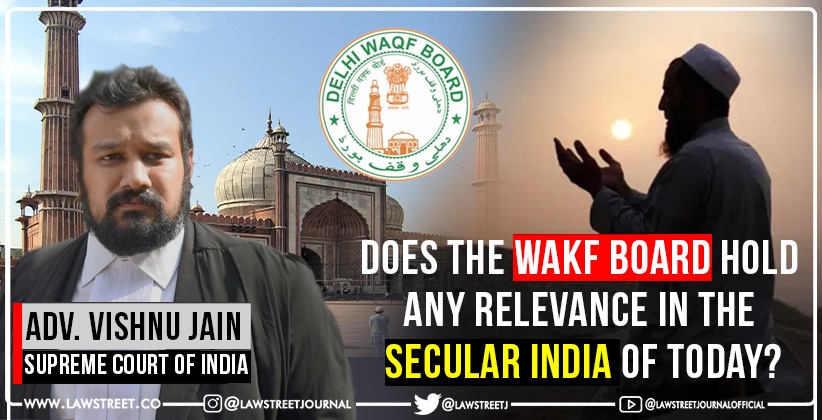NEW DELHI: Amid growing concern among a section of people about possible misuse of the Waqf Act, 1995 for usurping properties, it is important to point out the Supreme Court, in a judgement on April 29, 2022, said in absence of a proof of dedication or user, a dilapidated wall or a platform cannot be conferred a status of a religious place for the purpose of offering namaz or prayers.
A bench of Justices Hemant Gupta and V Ramasubramanian had then dismissed an appeal filed by Waqf Board, Rajasthan against the High Court's decision allowing Jindal Saw Limited to remove a structure at Bhilwara after being granted a lease of 1556.7817 hectares for the mining of Gold, Silver, Lead, Zinc, Copper, Iron, Cobalt, Nickle and associated minerals.
In 2012, the Anjuman Committee addressed a letter to the Chairman of the Waqf Board stating there is a wall and Chabutrah (platform) on a 'Tiranga Ki Qalandari Masjid where in olden times laborers used to offer prayers.
The Waqf Board said that the area consisting of the platform over the Tiranga Hill should be saved from mining.
The court, however, noted the structure is totally dilapidated without any roof and in fact a wall and some broken derelict platform exist at the spot.
"The area is surrounded by vegetation and there is also nothing to suggest that the structure was ever used for offering prayers (Namaaz) as neither the area is accessible, nor there is any facility of Wazoo, which is stated to be an essential step before offering prayer. The experts from the Archaeological Department have reported that the structure has no historical or archaeological importance," the court had said.
Even though the state government claimed that they have identified it to be a religious structure, the court pointed out the stand has not been substantiated from record.
"There is nothing on record that such decision if any, was arrived. It is always open to the State as lessor to exercise the powers conferred in it by the lease deed after complying the principles of natural justice and on good and sufficient grounds," the bench had said.
With this judgement, it can be safely said that the Waqf Board has to show valid documents to make any claim over a property or land as mere verbal assertion would have no meaning in the eyes of law.
It is significant here to point out the Waqf properties are estimated to have grown exponentially in recent decades and the Waqf Board has become largest holder of lands in the country after defence and railways.
BJP leader and advocate Ashwini Kumar Upadhyay have challenged the validity of the Waqf Act in the Delhi High Court. He has filed a transfer petition in the Supreme Court for transferring the matter to the top court.















Vilas Hariba Thorat Sep 30, 2022
As per judgement of supreme court dtd April 2022 waqf can't claim any property in absence of documentary evidences on mearly registering it with waqf board & practice of offering Namaz since long back. Then why the demand of hindu community people for using Idgah ground for Ganpati festival was rejected by Supreme court in August 2022 as the ownership of this ground is with municipal corporation of that area.